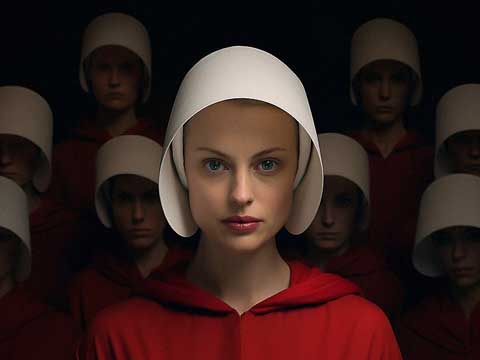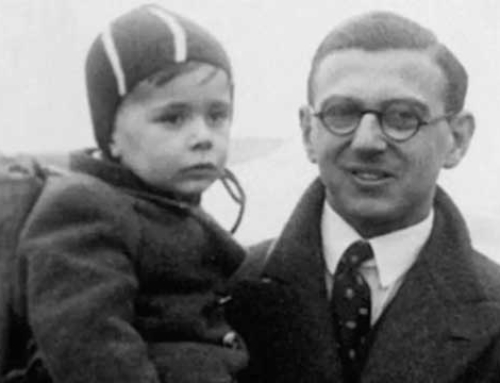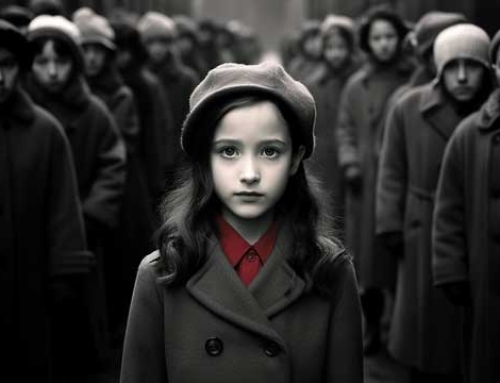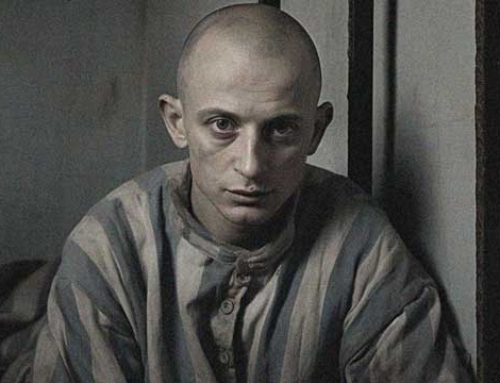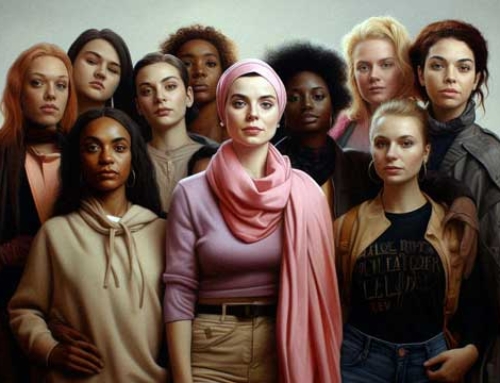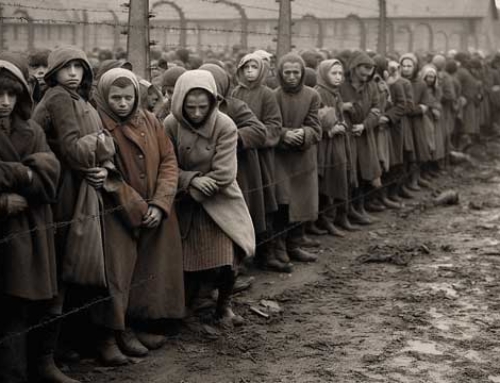In Margaret Atwood’s dystopian world of “The Handmaid’s Tale,” we are transported to the Republic of Gilead, a totalitarian state born from the ashes of the United States. Here, women are reduced to their reproductive functions, deprived of their rights, and subjected to male dominance. The protagonist, Offred, is a “Handmaid,” a woman whose sole purpose is to procreate for the ruling class. Her story is a poignant reflection of the struggle for autonomy and identity in a world where women are treated as second-class citizens.
The terrifying reality of The Handmaid’s Tale: parallels with the contemporary world
But let’s look at the real world. Is “The Handmaid’s Tale” just a distant dystopia? Unfortunately not. The parallels with some contemporary societies are frighteningly clear. Consider countries where women still fight for basic rights, such as the right to education, the right to vote, or even the right to travel independently. In some parts of the world, women are still seen as the property of their husbands or fathers, with little to no control over their own lives.
An echo in dress codes and bodily autonomy
The oppression in Gilead may seem extreme, but it is an amplified echo of reality in some countries. The mandatory dress codes for Handmaids in the book are reminiscent of the strict dress codes imposed on women in certain cultures. The control over the female body and reproductive rights in Gilead is a dark mirror of the struggle around abortion rights and bodily autonomy that we still see today.
Atwood’s call to action in The Handmaid’s Tale: vigilance and defense of women’s rights
Atwood’s story is not just a warning of what could happen if we do not remain vigilant about women’s rights; it is also a call to action. It reminds us that the freedoms and rights we now have should not be taken for granted. They are the result of long struggles and must be constantly defended.
The need for awareness and action
As a humanist and advocate for women’s rights, I urge everyone to see “The Handmaid’s Tale” not only as a work of fiction but as a necessary reflection on our current world. It is a story that challenges us to fight for a world where women’s rights and freedoms are not only recognized but also unconditionally respected.


